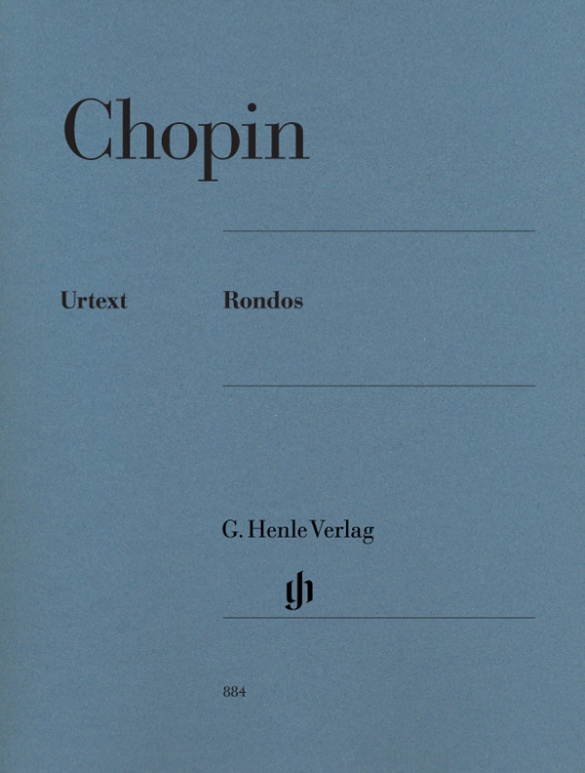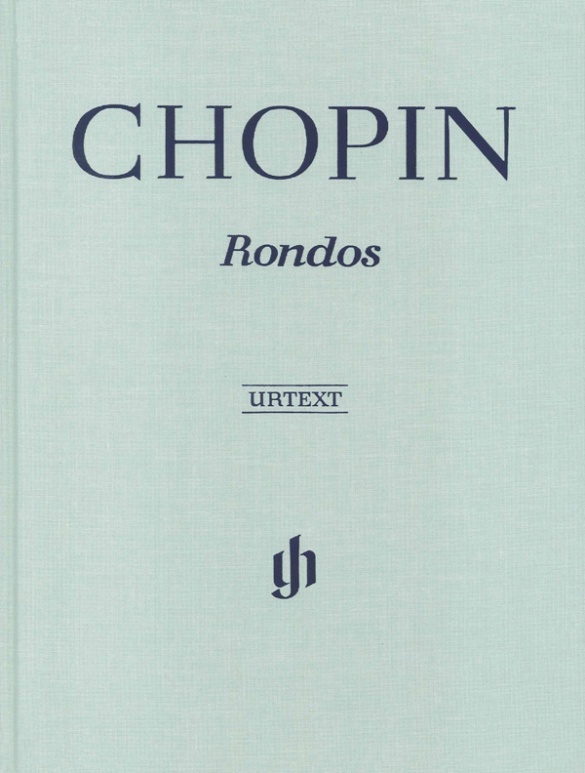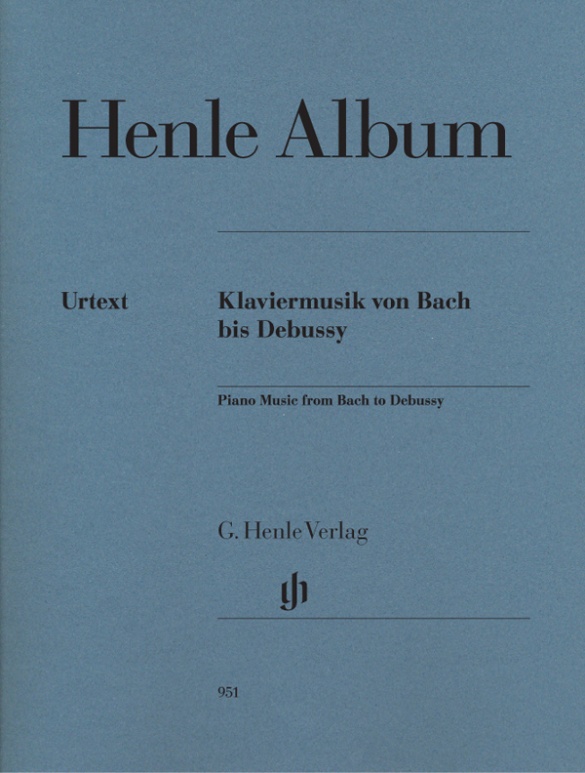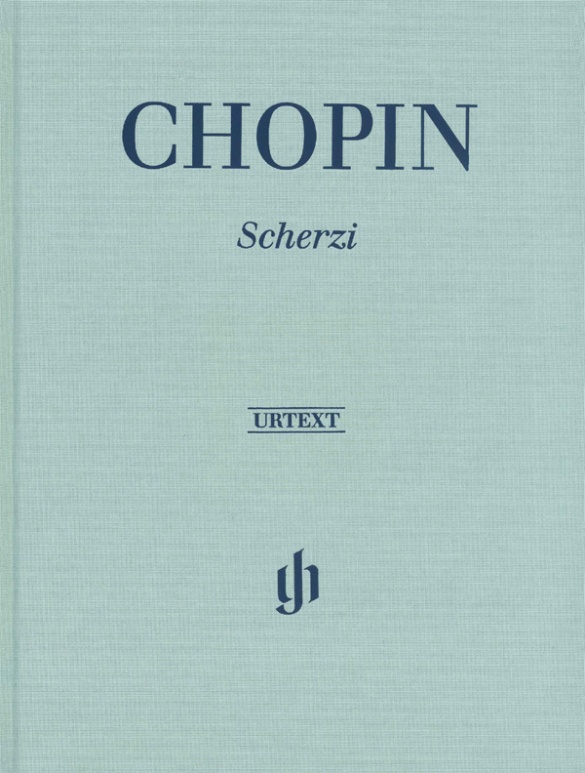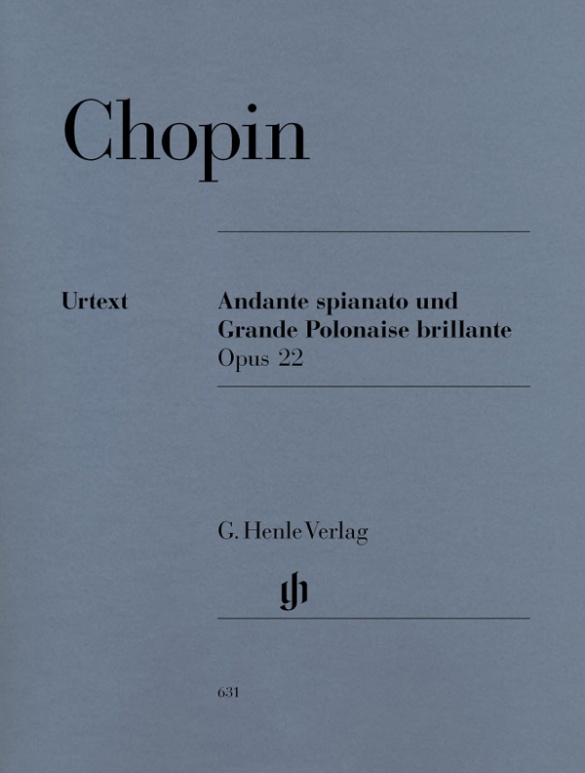

Frédéric Chopin
Andante spianato et Grande Polonaise brillante en Mi bémol majeur op. 22
Précédée d’un Andante en forme de nocturne en guise d’introduction, cette charmante polonaise fut écrite initialement pour piano et orchestre. Datant de la même époque que les deux concertos pour piano en mi mineur et fa mineur de Chopin, elle est animée de la même fraîcheur juvénile. Comme l’orchestre n’y joue qu’un rôle très secondaire d’accompagnement, la polonaise peut tout aussi bien être jouée uniquement au piano; c’est d’ailleurs ainsi qu’elle est quasiment toujours donnée en concert à l’heure actuelle. En ce sens, et conformément aux premières éditions, notre édition urtext n’est pas présentée sous la forme d’une réduction pour piano (avec deux accolades), mais contient uniquement la partie de soliste. Aux rares endroits où le piano solo fait une pause, nous donnons l’accompagnement orchestral en petites notes.
CONTENU/DÉTAILS
(Explanation)
CONCERNANT LE COMPOSITEUR
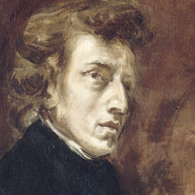
Frédéric Chopin
Pianiste et compositeur. Son œuvre, centrée sur la musique de piano, jouit d’une extraordinaire popularité et fait désormais partie intégrante du répertoire de concert. Sa musique a influencé les générations futures de compositeurs français (Franck, Saint-Saëns, Fauré, Debussy), mais aussi Smetana, Dvořák, Balakirev, Grieg, Albéniz.
| 1810 | Né le 1er mars à Želazowa Wola près de Varsovie. Premières compositions à l’âge de 7 ans. Première audition publique à l’âge de 8 ans. |
| 1822 | Cours privés de composition. |
| 1825 | Publication d’une première œuvre, le Rondo en Ut mineur op. 1. |
| 1826–29 | Études à l’École supérieure de musique à Varsovie. |
| 1829 | «Fantaisie sur des airs nationaux polonais» en La majeur op. 13, Trio avec piano en Sol mineur op. 8. Voyage à Vienne où il donne deux académies avec ses compositions et des improvisations. |
| 1829–33 et 1835–37 | Les Études op. 10 et op. 25 s’imposent comme un nouveau type d’étude virtuose à ambition esthétique. |
| 1830 | Création de ses deux Concertos pour piano en Fa mineur op. 21 et Mi mineur op. 11 à Varsovie. |
| 1831 | Ne pouvant retourner à Varsovie en raison de l’insurrection polonaise, il se rend à Paris où il demeure jusqu’à la fin de sa vie. |
| 1832 | Concert inaugural à Paris avec un grand succès. |
| 1835/38 | «Trois valses brillantes» op. 34. |
| 1836/39 | «24 Préludes» op. 28: une série de brèves pièces densément structurées et à déroulement cyclique. |
| 1835/39 | Sonate pour piano en Si bémol mineur op. 35 avec la Marche funèbre. |
| 1842/43 | Ballade n° 4 en Fa mineur op. 52, «Grande Polonaise brillante» en La bémol majeur op. 53, Scherzo n° 4 en Mi majeur op. 54. |
| 1833 | Sonate pour piano en Si mineur op. 58. |
| 1849 | Achèvement des Mazurkas en Sol mineur et Fa mineur. Meurt le 17 octobre à Paris. |
About the Authors
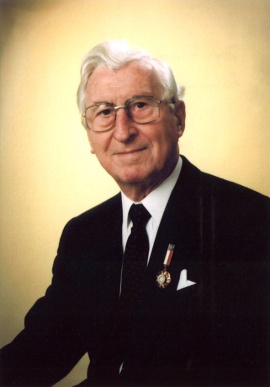
Ewald Zimmermann (Editeur)
Dr. Ewald Zimmermann (1910–1998) studied the piano (Privatmusiklehrer-Examen with Eduard Erdmann) and musicology, doing a doctorate in the latter following his time as a soldier in World War II and subsequent time as a prisoner of war in Russia. In 1953 he became the first editor in the history of G. Henle Publishers, where he worked for 22 years alongside the founder of the publishing house, Günter Henle, in Duisburg, actively and deftly supporting the young company’s initial steps. Zimmermann was in charge of almost all of the Urtext editions that were produced in his time, himself editing several volumes, including all of Frédéric Chopin’s works for piano. Under his direction, the first scholarly catalogue of Chopin’s musical works of the time (Krystyna Kobylańska) was produced, issued by G. Henle publishers in 1980.
In 1991 Zimmermann was honoured for his efforts with the Chopin Medal by the Chopin Society in Warsaw, and shortly afterwards received the order “Mérite en faveur de la culture polonaise” from the Polish government. Even after he had retired in 1975, during which time he devoted himself more intensively to playing the piano, he still retained close ties with the publishing house, remained in close contact with his successors and continued editing.

Klaus Schilde (Doigtés piano)
Prof. Klaus Schilde, born in 1926, spent his childhood in Dresden. There he was greatly influenced by Walter Engel, who taught him the piano (Kodaly method), composition and violin. From 1946–1948 he studied at the music conservatory in Leipzig with Hugo Steurer. After moving to the west in 1952 he studied with Walter Gieseking and Edwin Fischer, as well as with Marguerite Long, Lucette Descaves and Nadia Boulanger in Paris.
Schilde won numerous prizes. From 1947 onwards he gave concerts as a soloist and chamber musician on almost every single continent with renowned orchestras. He taught at the music conservatories in East Berlin Detmold, West Berlin, Munich, Tokyo (Geidai) and Weimar. From 1988–1991 he was President of the Staatliche Hochschule für Musik und Theater in Munich, where he also taught for decades as a professor. There are numerous radio and television broadcasts with Klaus Schilde as well as CD recordings. Schilde has contributed fingerings to almost 100 Henle Urtext editions.
Prof. Klaus Schilde passed away on 10 December, 2020.
Informations sur la sécurité du produit

G. Henle Verlag
Vous trouverez ici des informations sur le fabricant du produit.G. Henle Verlag e.K.
Forstenrieder Allee 122
81476 München
Allemagne
info@henle.de
www.henle.com
Druckbild, Vorwort, Kritischer Apparat und Fingersatz sind -- wie bei Henle üblich -- in hervorragender Verfassung und dem Interpreten eine echte Hilfe.
Piano Newsrecommandations
autogenerated_cross_selling
Autres éditions de ce titre
Autres éditions de ce titre


